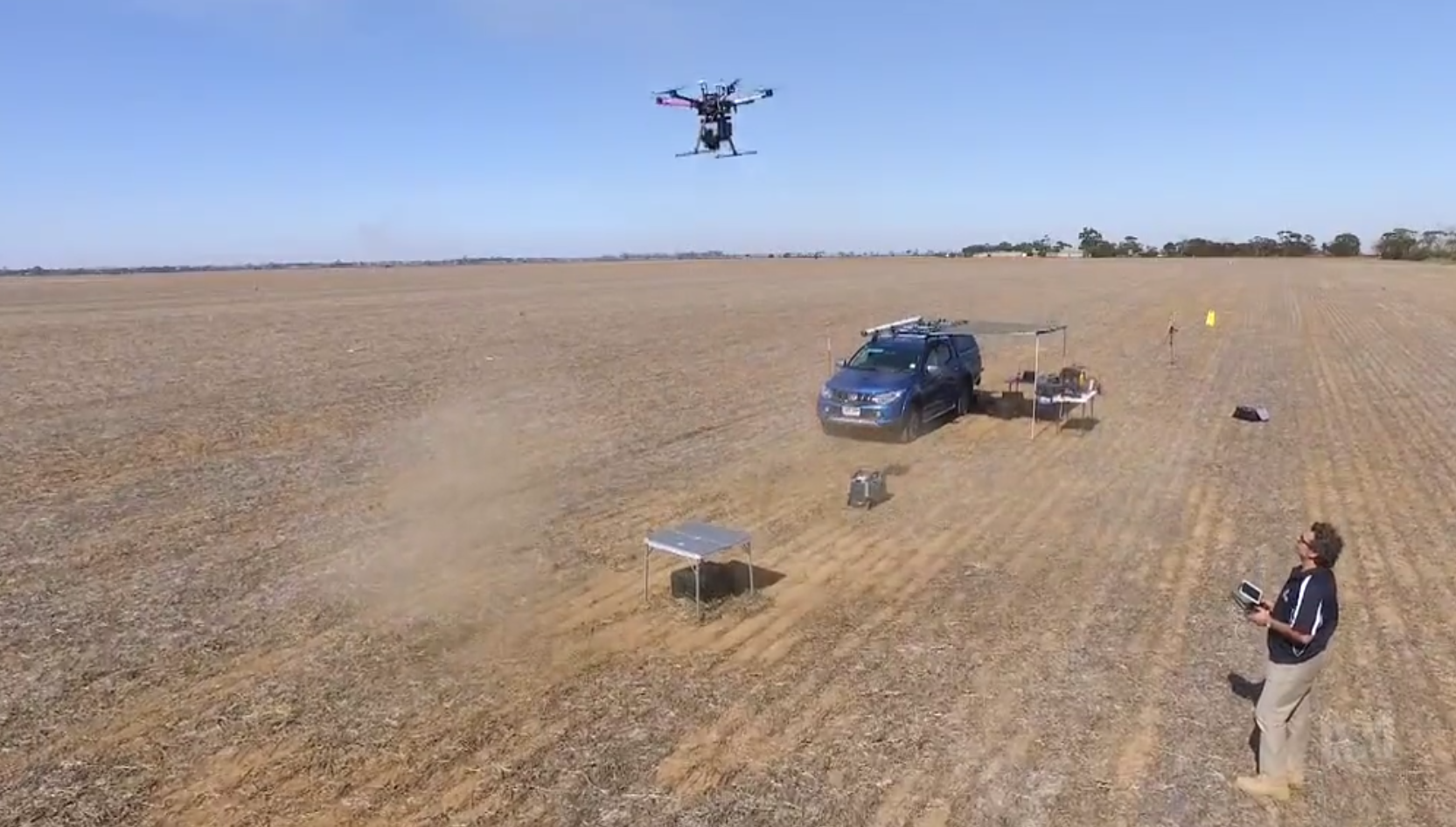Use of drones to assess the performance of wheat in sodic soils

Investigate wheat growth and yield in high-sodium soils using drone-mounted imaging techniques
Subsoil constraints, such as sodicity, prevent current elite wheat varieties from achieving their grain yield potential. The identification of plant traits which enable some wheat varieties to have higher yields than others is needed.
In collaboration with the Unmanned Research Aircraft Facility (URAF), this project will involve the use of drones fitted with various cameras, such as red-green-blue (RGB) and multispectral cameras, and handheld devices, such as a GreenSeeker, EM38 and ASD FieldSpec, to non-destructively assess the growth and spectral reflectance of wheat in field trials with sodic subsoils. A controlled greenhouse-based experiment would also be conducted to verify results.
A specific project can be tailored to suit your interests with all or some of the following: field phenotyping, drone image analysis, GIS, remote sensing, precision agriculture, plant physiology, plant nutrition and soil science components.
You will develop skills in:
- Field trials, greenhouse and growth chamber experimentation
- Remote sensing, GIS and drone image analysis
- Independent and collaborative research skills
- Experimental design and data analysis
Key References:
Araus J.L., Kefauver S.C., Zaman-Allah M., Olsen M.S., Cairns J.E. (2018): Translating High-Throughput Phenotyping into Genetic Gain Trends in Plant Science 23(5):451-466 doi: 10.1016/j.tplants.2018.02.001

Supervisors
Co supervisors: Dr Ramesh Raja Segaran | Associate Professor Glenn McDonald
Research area: Farming systems
Recommended honours enrolment: Honours in Agricultural Science
